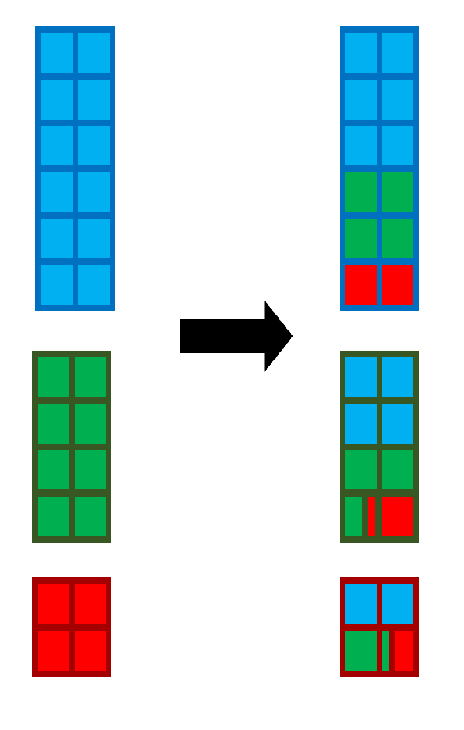This is a minor attempt to modify Condorcet methods in a simple way to become more responsive to broader consensus and supermajority power. It’s sort of like the reverse of STAR and may already be a system that I don’t know the name of. In my opinion, the majority criterion is not necessarily a good thing in itself, since it enables tyrannical majorities to force highly divisive candidates to win elections, which is why I’ve been trying pretty actively to find some way to escape it.
For the moment I will assume that a Condorcet winner exists in every relevant case, and otherwise defer the replacement to another system.
First, find the Condorcet winner, which will be called the “primary” Condorcet winner. Next, find the “secondary” Condorcet winner, which is the Condorcet winner from the same ballots where the primary Condorcet winner is removed everywhere.
Define the Borda difference from B to A on a ballot as the signed difference in their ranks. For example, the Borda difference from B to A on the ballot A>B>C>D is +1, and on C>B>D>A is -2.
If A and B are the primary and secondary Condorcet winners, respectively, then we tally all of the Borda differences from B to A. If the difference is positive (or above some threshold), then A wins, and if it is negative or zero (or not above the threshold), then B wins.
For example, consider the following election:
A>B>C>D [30%]
A>B>D>C [21%]
C>B>D>A [40%]
D>B>C>A [9%]
In this case, A is a highly divisive majoritarian candidate and is the primary Condorcet winner. B is easily seen to be the secondary Condorcet winner. The net Borda difference from B to A is
(0.3+0.21)-2(0.4+0.09)<0
Therefore B would be chosen as the winner in this case.
Some notes about this method:
It certainly does not satisfy the Condorcet criterion, nor does it satisfy the majority criterion. These are both necessarily sacrificed in an attempt to prevent highly divisive candidates from winning the election. It does reduce to majority rule in the case of two candidates, and it does satisfy the Condorcet loser criterion, as well as monotonicity and is clearly polynomial time. It can also be modified to use some other metric in the runoff based on the ballot-wise Borda differences.
Continuing with the above example, suppose that the divisive majority attempts to bury B, which is the top competitor to A.
This will change the ballots to something like
A>C>D>B [30%]
A>D>C>B [21%]
C>B>D>A [40%]
D>B>C>A [9%]
And if the described mechanism is used in this case, we will find instead that C is elected. So burial has backfired if B is "honestly" preferred over C by the divisive majority, and they would have been better off indicating their honest preference and electing B.
And again, suppose that the divisive majority decides to bury the top two competitors to A, namely B and C, below D, keeping the order of honest preference between them. We will find
A>D>B>C [30%]
A>D>B>C [21%]
C>B>D>A [40%]
D>B>C>A [9%]
In this case, the secondary Condorcet winner is D, and the mechanism will in fact elect D, again a worse outcome for the tactical voters.
Finally, suppose that they swap the order of honest preference and vote as
A>D>C>B [30%]
A>D>C>B [21%]
C>B>D>A [40%]
D>B>C>A [9%]
Still this elects D.
As a general description, this method will elect the Condorcet winner unless they are too divisive, in which case it will elect the secondary Condorcet winner, which will necessarily be less divisive. I believe that choosing the runoff to be between the primary and secondary Condorcet winners should maintain much of the stability of Condorcet methods, while the Borda runoff punishes burial and simultaneously addresses highly divisive candidates.

 Wouldn’t that be wonderful.
Wouldn’t that be wonderful.